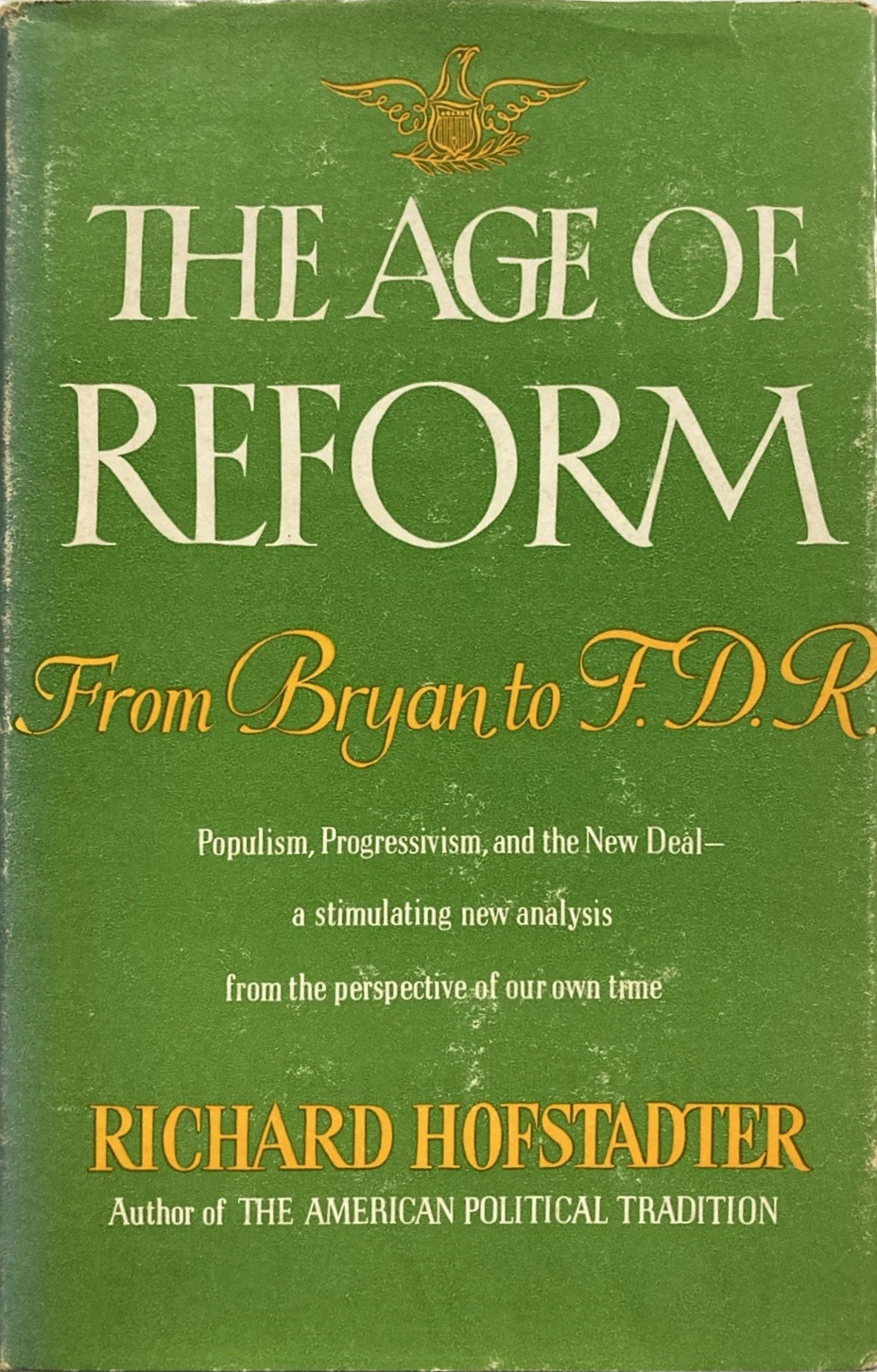Hardcover, 336 pages
English language
Published 1955 by Alfred A. Knopf.

Hardcover, 336 pages
English language
Published 1955 by Alfred A. Knopf.
This book is a landmark in American political thought. It examines the passion for progress and reform that colored the entire period from 1890 to 1940 — with startling and stimulating results. While it is sympathetic to the ideals of the reformers, it dismisses any notion, conservative or liberal, of returning to their world — a world that never was. It does not review old issues and forgotten political planks, but searches out the emotional drives of the reformers, their social and psychological motives, the myths and dreams in which they believed, and the realities with which they had to compromise.
The book begins in an era when, though Americans fondly believed that security and prosperity were the rewards of good character, individualistic enterprise, and freedom, these actually were becoming the rewards of social and industrial organization. Americans were looking backward to an old dream at the same time …
This book is a landmark in American political thought. It examines the passion for progress and reform that colored the entire period from 1890 to 1940 — with startling and stimulating results. While it is sympathetic to the ideals of the reformers, it dismisses any notion, conservative or liberal, of returning to their world — a world that never was. It does not review old issues and forgotten political planks, but searches out the emotional drives of the reformers, their social and psychological motives, the myths and dreams in which they believed, and the realities with which they had to compromise.
The book begins in an era when, though Americans fondly believed that security and prosperity were the rewards of good character, individualistic enterprise, and freedom, these actually were becoming the rewards of social and industrial organization. Americans were looking backward to an old dream at the same time that they were moving forward to what Mr. Hofstadter calls a status revolution. Among many other things, this status revolution changed the farmer from an individualistic yeoman to a businessman in agriculture; it reduced the prestige of lawyers as they became corporation functionaries; it altered the secure outlook of the middle class, which was now overshadowed by a large number of new millionaires, to one of great anxiety.
The emotional shocks of the status revolution sometimes abetted isolationism; hatred of Europe; racial, religious, and nativist phobias; and resentment of big business, trade-unionism, intellectuals, the Eastern seaboard and its culture. All these have been found not only in opposition to reform, but at times oddly combined with it. "But populism, for all its zany fringes, was not a forerunner of modem authoritarian movements; nor was Progressivism … a harbinger of our most troublesome contemporary delusions.”
The last chapter offers a completely fresh analysis of the New Deal. “Roosevelt and his supporters were attempting to deal with the problems of the American economy within the distinctive framework of American political methods. . . . [ But ] the beginning of the war meant that Americans, with terrible finality, had been torn from the habitual security of their domestic life. . . .With this change came the final involvement of the nation in all it had sought to avoid, for it was not only mechanized and urbanized and bureaucratic, but internationalized as well. Much of America still longs for — indeed expects again to see — a return of the older individualism and the older isolation, and grows frantic when it finds that even our conservative leaders arc unable to restore such conditions." Thus ends Mr. Hofstadter's highly stimulating and original analysis of an important aspect of American life.